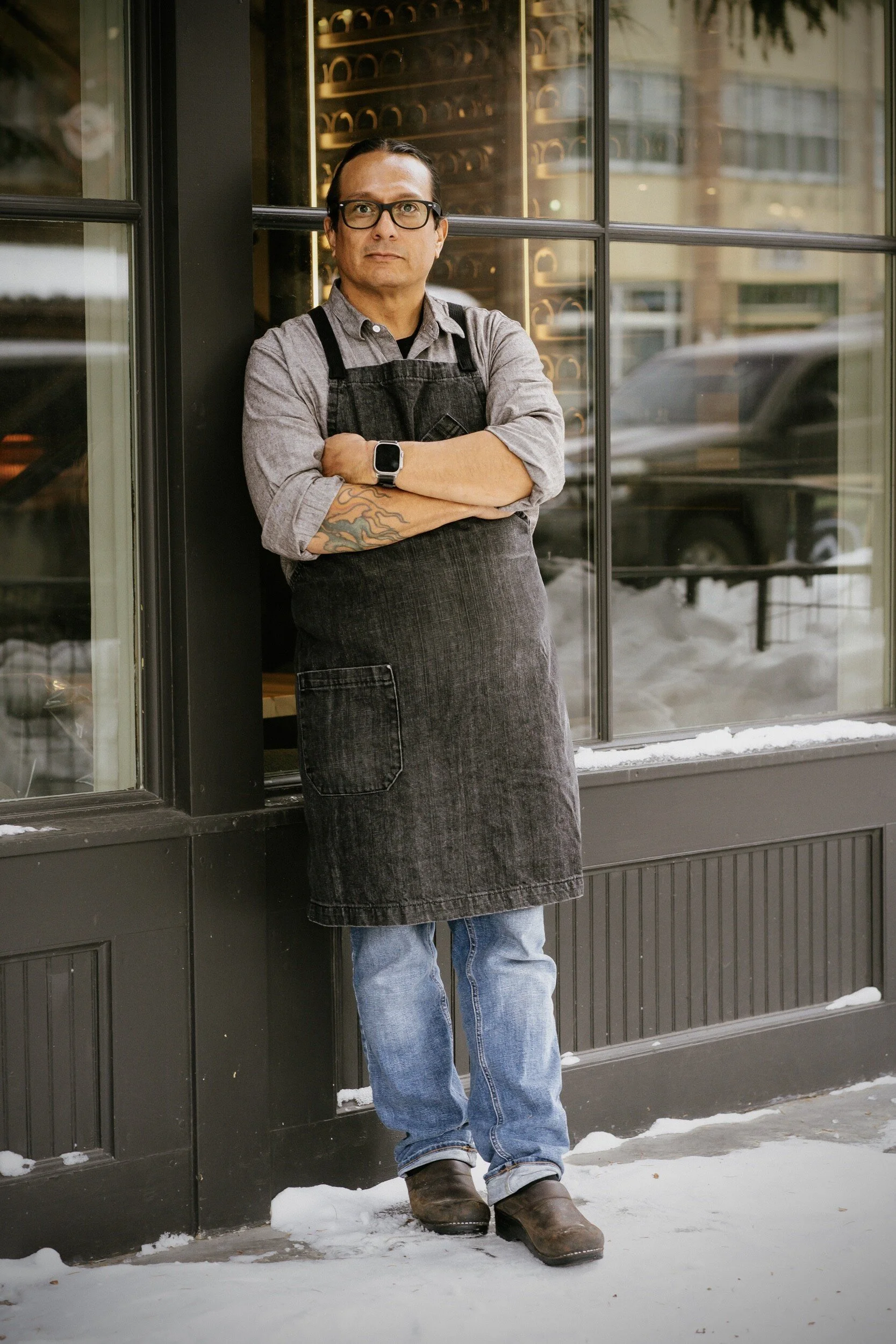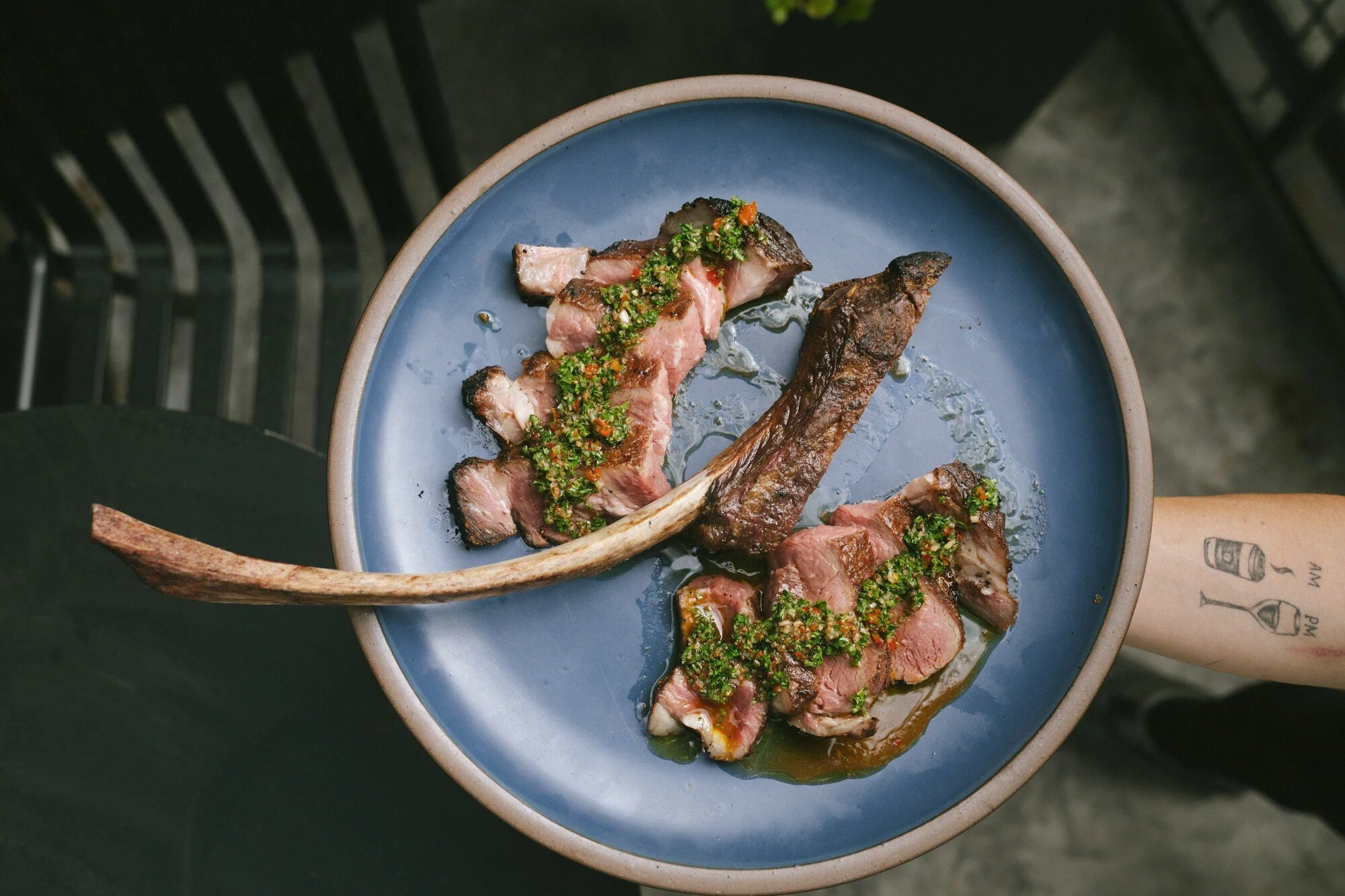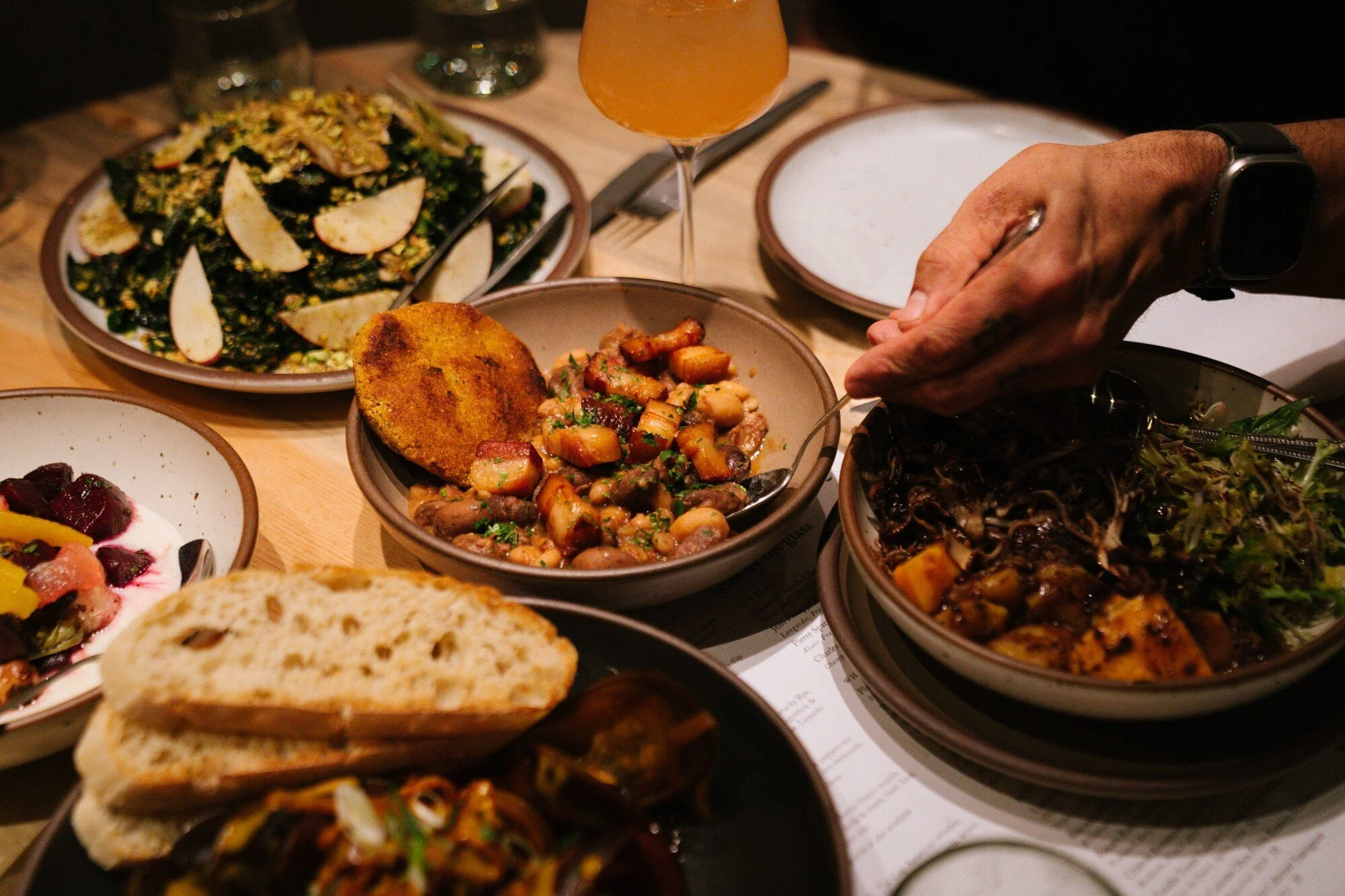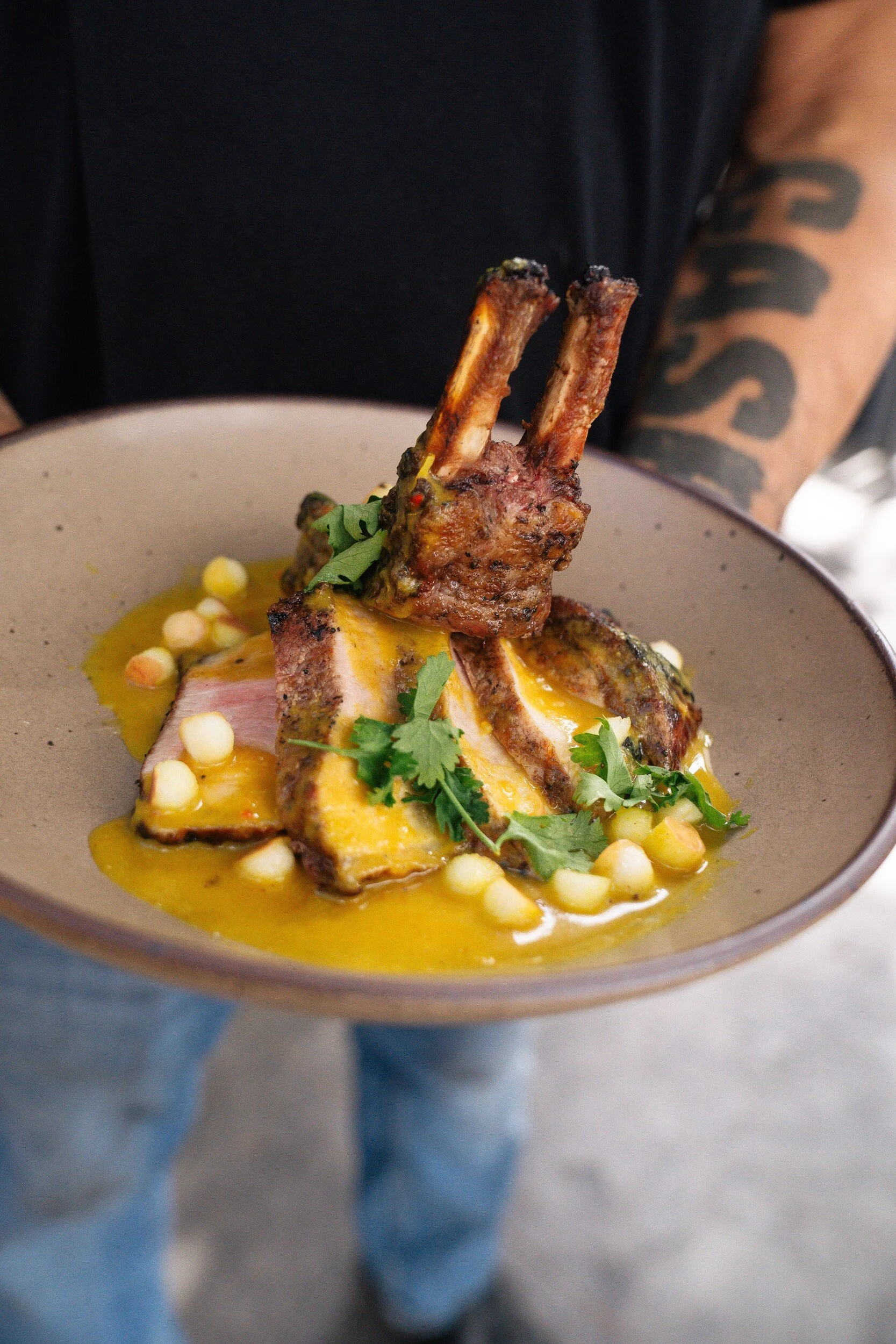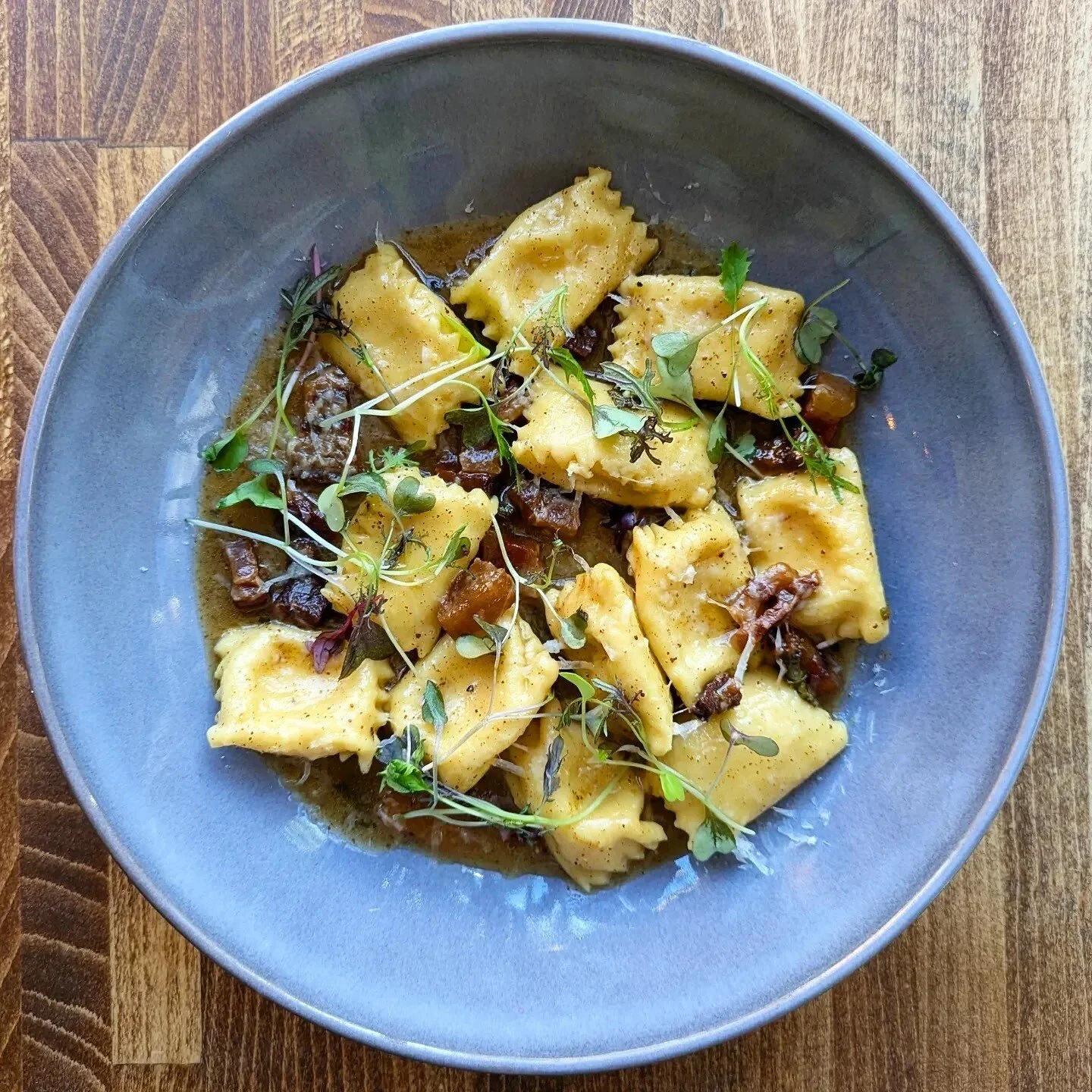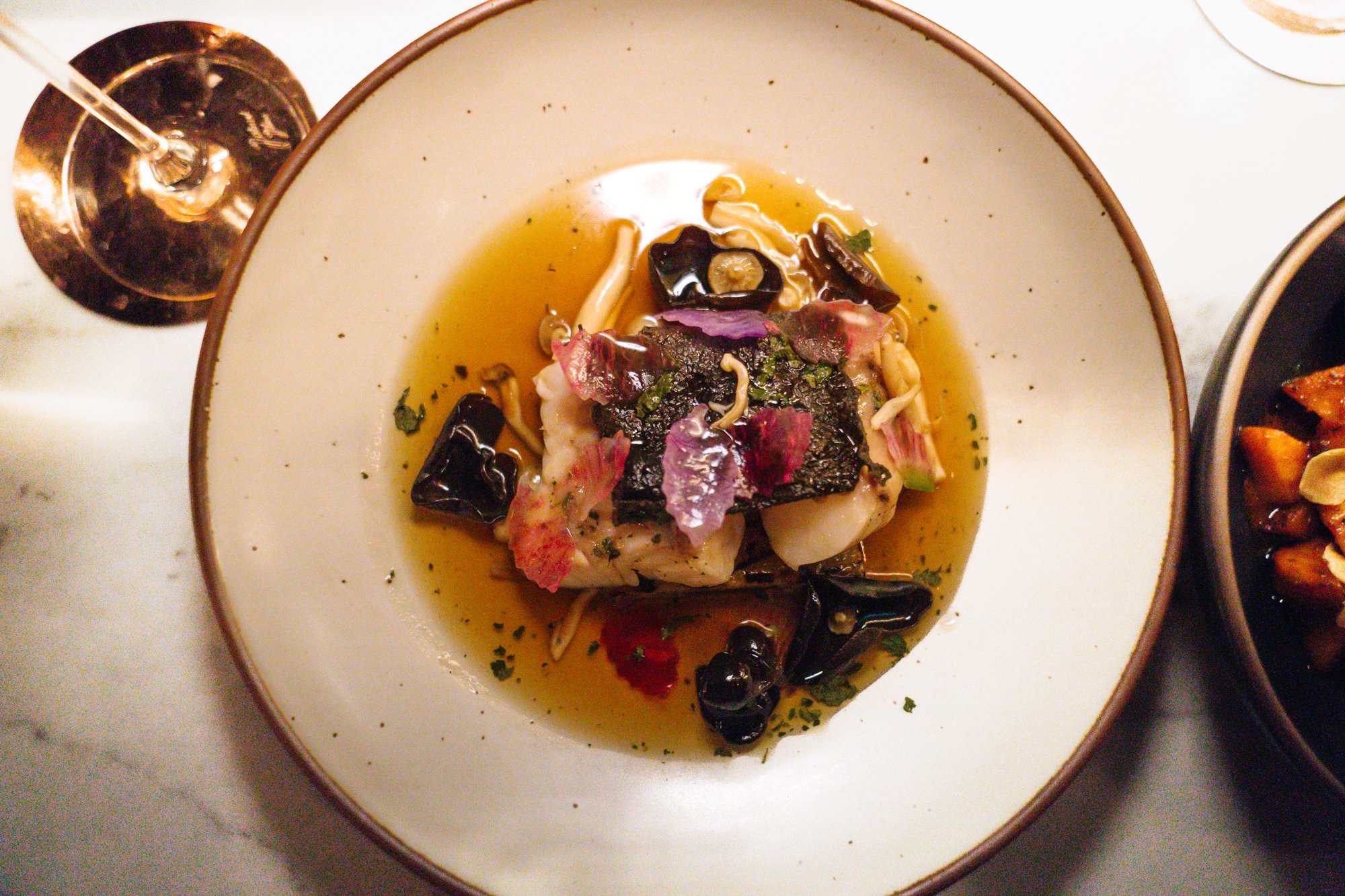
COLORADO
From Bottle-Feeding Calves to Plating Seasonally: Meet Chef Anthony Nelson
Chef Anthony Nelson of Two Twelve in Crested Butte shares how growing up on a Colorado farm shaped his cooking—and why fire still drives his menus
Written by Eric Barton | Photos by Lauren Storer | July 8, 2025
AUTHOR BIO: Eric Barton is editor of The Adventurist and a freelance journalist who has reviewed restaurants for more than two decades. Email him here.
Before he was the chef behind one of Crested Butte’s most ambitious kitchens, Anthony Nelson was a farm kid in Yuma, Colorado, bottle-feeding calves and fixing fences after school.
These days, he cooks over live fire at Two Twelve, where the menu is dictated by what’s in season and who he’s sourcing from. We caught up for a back-and-forth about how a rural upbringing shaped his perspective, why he’s still obsessed with woodsmoke, and where he goes to clear his head when he's not in the kitchen.
Chef Anthony Nelson
You grew up on a farm in Yuma. What did dinner look like, and how does that show up in your cooking?
Dinner was an important part of our family dynamic. We had dinner every night, and I often had friends over. Since we lived on a cattle farm, beef was part of nearly every meal. Oftentimes, it depended on how late everyone was working—my parents wouldn’t get home until 9 p.m. during harvest. That’s when I first started cooking. My mom would call, explain what she had in the fridge, and walk me through dinner prep so we could all sit down and eat when they got home.
The communal, family-style dinner is still something I think is important—a meeting place to share a moment and nourishment with friends and family.
A lot of chefs talk about “knowing your farmer,” but you were the farmer. Does that give you a different way of thinking about ingredients?
I understand what it takes to grow food, and that’s key. So much hard work and care goes into it that it should be respected. The farmer work ethic is real—“the work isn’t over until it’s over”—and that has a direct parallel to being a chef. Work is a way of life. You have to love what you do to be a farmer. You have to love what you do to be a chef. Strong parallels.
Dry-aged tomahawk
Was there a moment in a big-city kitchen when you realized your rural upbringing gave you an edge?
It’s definitely the work ethic. The willingness to put in the time and effort needed to finish whatever’s in front of me. Most people don’t grow up with that kind of environment—I was helping my mom fix fences when I was 12. And then there’s the understanding of where food actually comes from. That’s lost on a lot of people. I grew up bottle-feeding calves, hauling hay, processing animals. I know the difference between bulls, steers, heifers. For me, there’s no disconnect between farm and restaurant.
A table spread from Two Twelve
Sea bream with Japanese style mushrooms
You studied visual arts before turning to food. What made the kitchen feel like the right canvas?
A white plate and a white canvas are very similar. The questions are the same: What am I trying to say? Color? Form? Shape? With visual art, it’s about creating an image that makes people think or feel. With food, you get to take it further—taste, smell, flavor. A dish can bring someone back to a place, a moment, a memory. You can look at a painting and feel good. You can eat a meal and feel something in your soul.
Nelson works the fire at Two Twelve
At Field & Main and now at Two Twelve, fire and seasonality are central. Why do those ideas still drive you?
I love working with live fire. Once you understand what fire can do for taste and flavor, everything else starts to feel boring. In Virginia, I was creating hyper-seasonal food that shined a light on the local farms. I found my voice there. I’d rather write a menu based on what’s growing than force the same thing year-round. A laminated menu is the death of seasonal cooking. Also, I believe seasonal ingredients are healthier. Mass-produced food isn’t handled the same way. I try to eat healthy, and that’s part of why seasonality matters—it leads to healthier people.
From Nobu to Nashville to Virginia, you’ve cooked all over. What farm-grown lessons have stuck with you?
Mainly the willingness to do the work. Nothing comes easy. It’s not about the money or the hours—it’s always about the task at hand.
Dry aged tomahawk
When you’re off the line in Crested Butte, where do you go to unwind—or grab a bite made by someone else?
Growing up in Colorado, I’ve always loved the mountains. I started skiing at 6, snowboarding at 12. There’s nothing like being on top of the mountain—the crisp air, the view—it clears your head. I also enjoy mountain biking when I can. But honestly, living up here, the best part is just taking the time to appreciate the drive into town or spotting the elk herd that’s always pasturing in the same place. Crested Butte is about slowing down. Taking the time to smell the roses.
Sakura pork chop with apple coconut curry


